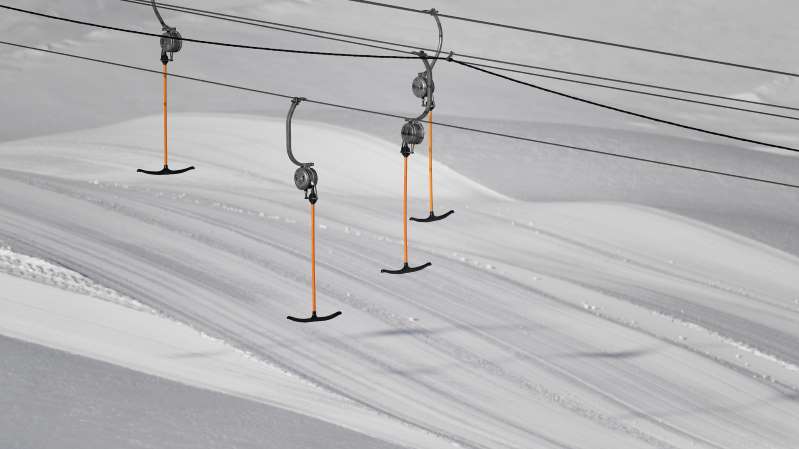The economic researchers expect a drop in overnight stays of 83 percent compared to the previous year.

Icon image.
The corona crisis continues to burden domestic tourism: demand has so far come to a complete standstill in winter due to the lockdowns in Austria and important markets of origin, according to Wifo.
No reliable forecasts are yet possible for the season as a whole, “the largely omission of the 2020/21 winter season can no longer be prevented”. Even further opening steps from March than currently expected would change little.
Overnight stays
Wifo currently estimates that the number of overnight stays in winter 2020/21 will only amount to around 10.2 million, which is around 83 percent below the previous year's figure. Compared to the record winter 2018/19 with 72.9 million overnight stays, that would be a drop of over 86 percent.
In the first two months of the winter season, in November and December 2020, overnight stays fell by 89.4 percent to 1.86 million overnight stays. The number of guests fell by around 94 percent to around 375,000. According to initial estimates, income fell nominally by 90.3 percent and price-adjusted (real) by 90 percent – without taking into account payments from the public sector as part of the Covid-19 aid. There were definitely regional differences. The federal states, which are heavily dependent on foreign guests – Vienna and western Austria – suffered a complete loss of these guest groups and thus also their sales.
There is likely to be a significant shift in terms of origin in favor of domestic tourists, whose share of the market for overnight stays could rise to around 44 percent in 2020/21, according to Wifo in its tourism analysis published today. In the normal season 2018/19, the proportion was still 22.7 percent.
outlook
For the summer season and beyond, the uncertainty about the course of the corona pandemic and the progress of vaccination hardly allowed any reliable statements, according to the researchers. This uncertainty is heightened by the economic crisis with the resulting income and job losses.
In a “probably very optimistic scenario” under the current circumstances, assume that overnight stays will be three quarters of the overnight stay level of May 2019 in May 2021 and the demand gap will then decrease further – by 5.5 percent compared to 2019 in the third Quarterly and by 3 percent in the fourth quarter – “the number of overnight stays in 2021 will only just reach that of 2020”. It would be around 36 percent below the value for 2019.
“This means that demand can be expected in 2022 at the earliest, which will almost reach the pre-crisis level,” the economic researchers expect. Assuming that the recovery of city tourism will be delayed due to the dependence on long-distance markets and flight connections, normalization should not be expected until 2023.
Despite all the uncertainties, there is also reason to be optimistic: People's desire to travel is not only unbroken and one can assume that it has become even greater due to the long period of travel restrictions. Austria was also rediscovered as the main holiday destination by many residents in the summer. It seems quite possible that this could lead to a more sustainable revival of domestic tourism.

